Best Long-Blooming, Deer-Resistant Perennials
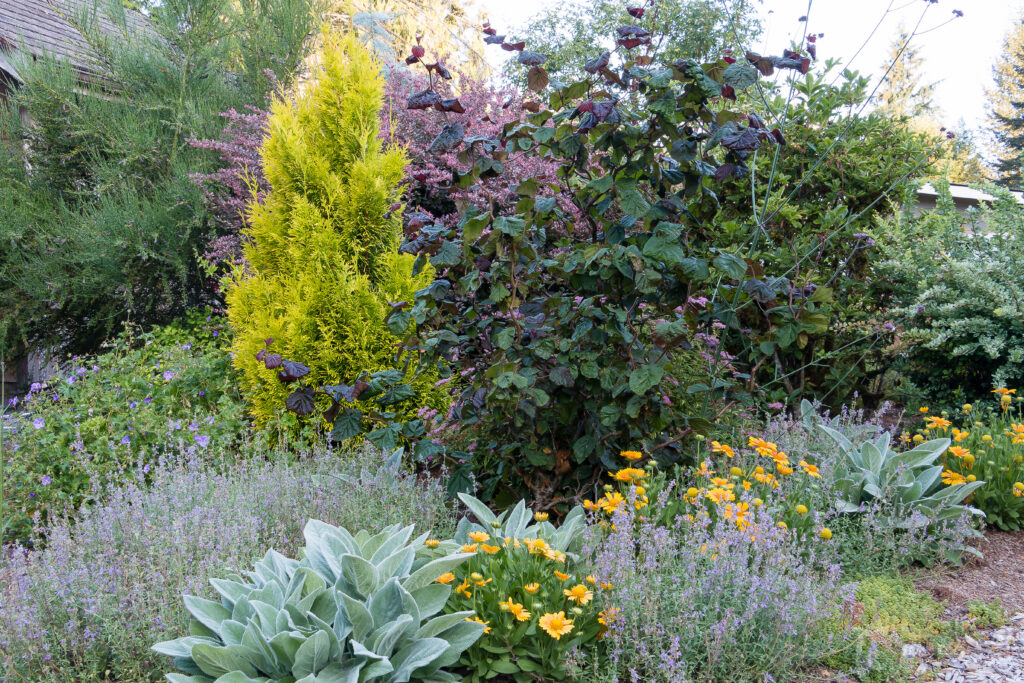
I expect a lot from my plants. Every selection has to earn it's place by offering significant multi-season interest with minimal care while also being deer-resistant. When it comes to flowering perennials that also means they have to be disease resistant and well-behaved. There's no room for "princess" plants that have to be clipped, preened or constantly chased to stop them spreading elsewhere without invitation.
Here are my top picks based on 6-10 years of experience growing them in the same garden. For context my USDA zone is 6b with horribly wet winters and progressively hot summers. The soil is amended clay and I give these no supplemental water once established. There are also several families of deer that call this garden their home.
Rozanne geranium
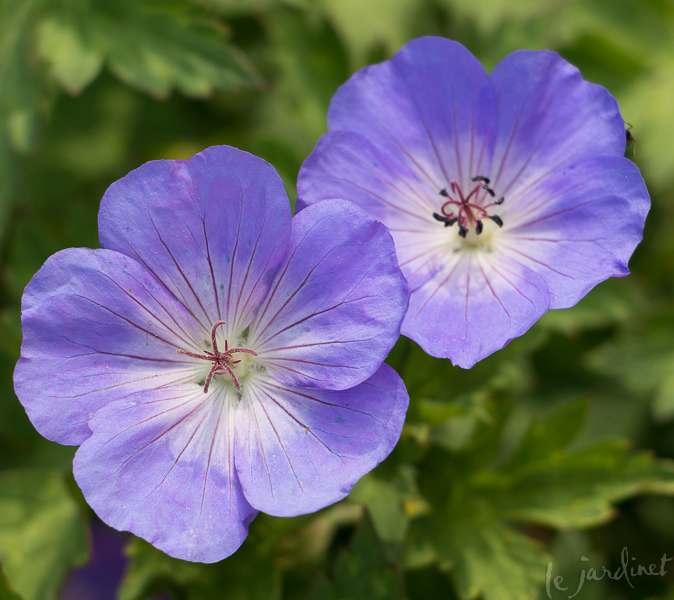
Rozanne geranium has periwinkle-blue flowers with a white eye and is much longer blooming than other hardy geraniums
There are many hardy geraniums available and I have grown quite a few but Rozanne remains my #1 choice. It begins flowering in late May and continues through to Thanksgiving most years. It needs no deadheading, doesn't need dividing, does not self-seed and gets pretty autumnal tints to the foliage when temperatures begin to drop. Care is limited to grabbing the stems together in a ponytail in late fall and chopping them off at the crown. Larger clumps can be easily divided if you wish to transplant some elsewhere and I've successfully grown this both in full sun and dappled shade.
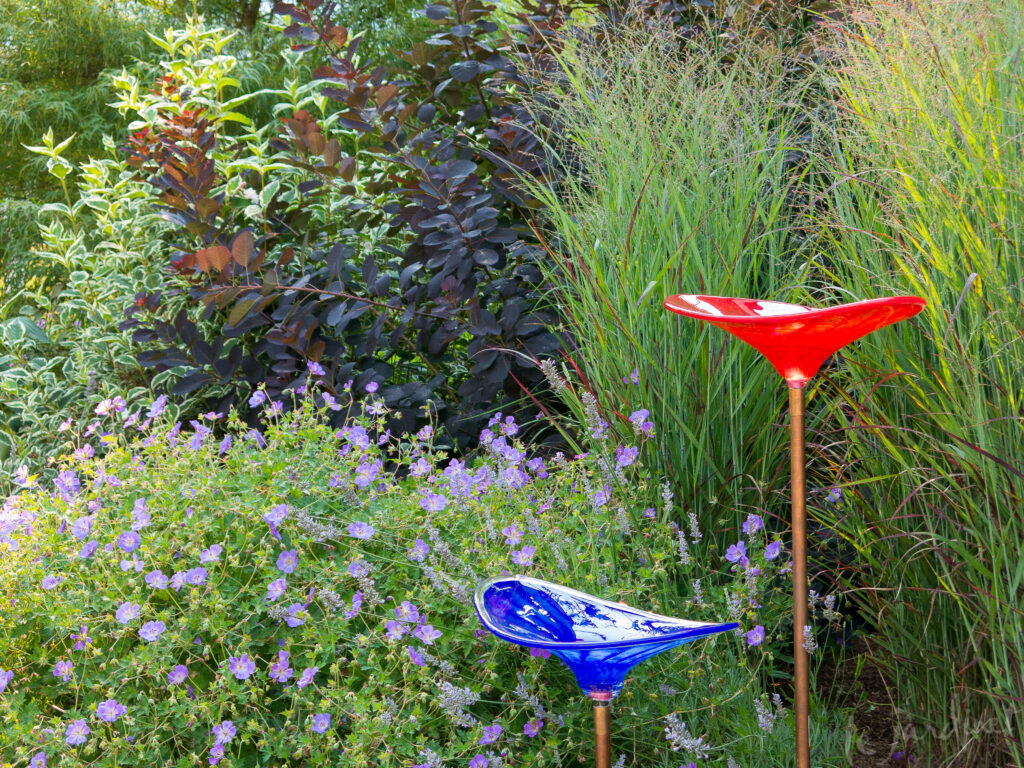
Rozanne geranium in combination with a purple smoke bush and Shenandoah switch grass. This 4-foot-diameter mound is a single plant
If you plant this along the deer's preferred route they may taste-test it, yet my experience has been that they will only sample the stems closest to them before moving on. Nor do the deer go out of their way to eat it. Rabbits may also nibble young stems but seem to quickly lose interest. For younger plants it may be worth a quick spritz of a repellent early in the season but I rarely do that now.
One plant can easily spread to 4-feet diameter so give it room. It's not a climber but will often weave a few tendrils through adjacent shrubs with a pretty effect. You could also plant this as a solo specimen in a tall container for a stunning summer display.
Walker's Low Catmint
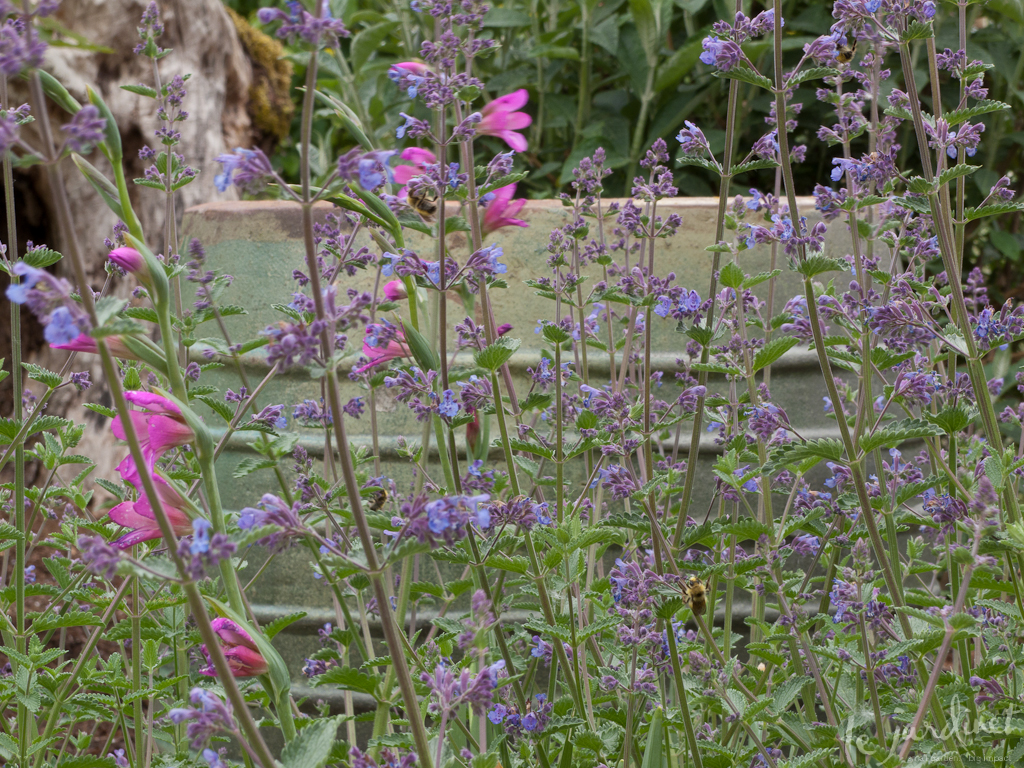
Walkers Low catmint inter-planted with a few magenta sword lilies (Gladioli communis ssp. Byzantinus) which sadly didn't overwinter for me
I've grown many varieties of catmint (Nepeta spp.) but Walker's Low remains a favorite for being moderately large but not too gangly, blooming prolifically over many months and being reliably deer, rabbit and drought resistant. Underplanting it with spring bulbs is an easy way to layer in more color.
Some years I've cut back the flowering stems mid-summer to get a second flush and to tidy the stems up a little. Yet when I haven't got around to it this catmint seems to bloom again anyway. Grow this along a pathway or mid-border to provide a fragrant froth of foliage and flowers all summer long.
Santa Barbara Daisy
This diminutive daisy is one of the fleabane (Erigeron spp.) species: Erigeron k. 'Profusion' and is another personal favorite of mine. In milder climates it will remain evergreen but for me it defoliates almost entirely. In spring I trim back many of the stems to the crown and it quickly grows back into a dainty green cushion studded with perfect little daisies.
Deer ignore it but rabbits may find the early growth tempting. A quick spray with repellent should be enough to give the daisy a chance to get going and quickly outgrow the rabbits appetite.
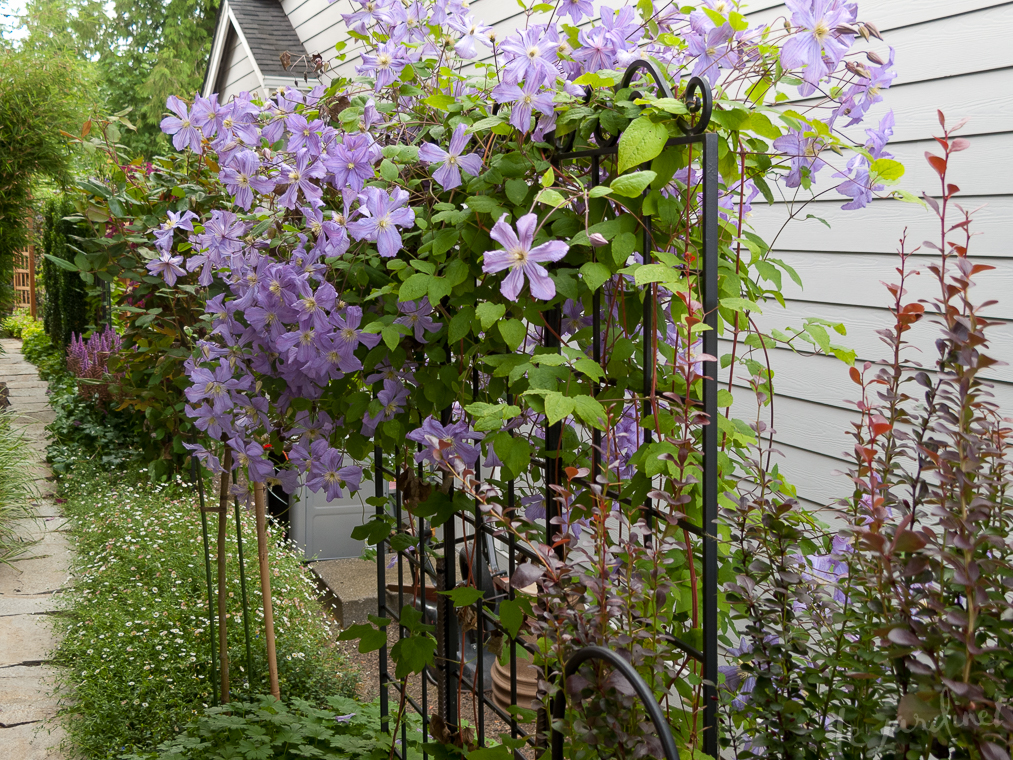
A garden I designed for clients several years ago featured a carpet of Santa Barbara daisy beneath taller plants.
This is the perfect flowering groundcover with blooms from spring until hard frost. Plant it between pavers, alongside a pathway, use it to soften boulders or stone steps or simply enjoy it as a filler in sunny beds between other shrubs and perennials.
Midnight Masquerade Penstemon
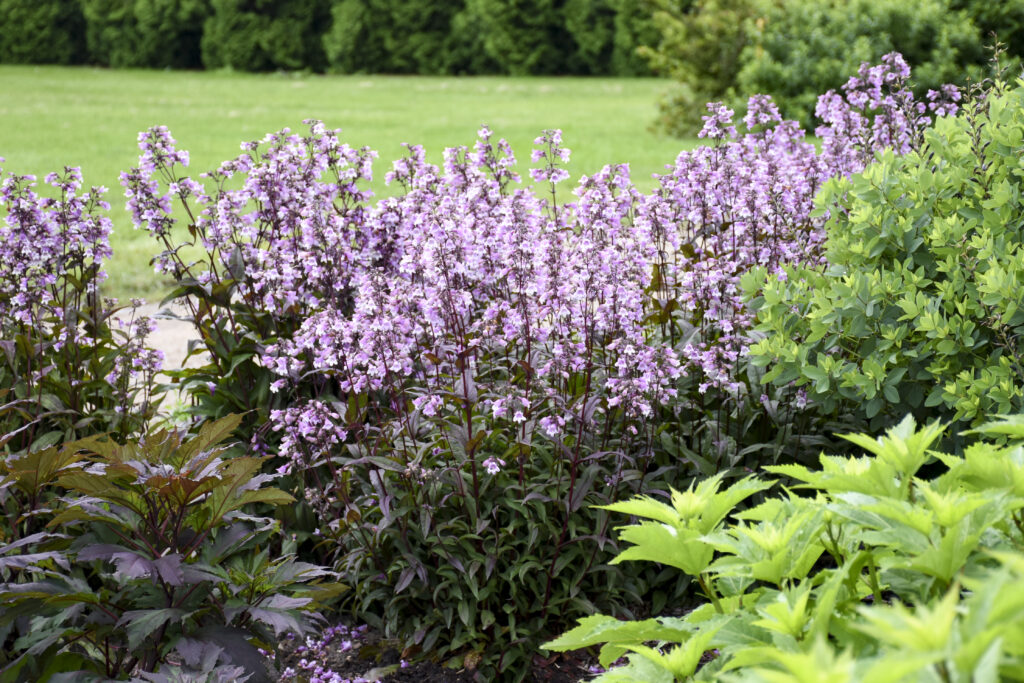
The dark foliage of Midnight Masquerade penstemon is a perfect foil for the lavender blooms. Photo credit: Proven Winners
I don't grow a lot of penstemon since few have proven hardy in my soil and my favorites only flowered for a few weeks. I was challenged to re-visit the genus, however, after researching my book Deer-Resistant Design and being enchanted by a display of penstemon in a New Jersey garden.
It just so happened that Proven Winners sent me a sample of Midnight Masquerade penstemon to try that year too. The rich burgundy foliage is eye catching – and it is evergreen for me, although our recent ice storm caused some leaf tips to turn brown. The tall spires of lavender blooms last for several months and the plants themselves have slowly multiplied to provide an increasingly impressive display.
I've never had any rabbits or deer show any interest in these so truly an easy care perennial.
Dark Towers penstemon also has dark foliage but the flowers are a soft white rather than lavender. This was the vignette that captured my imagination when I was on the book photo shoot and I imagine would do equally well here.
Blanket Flower
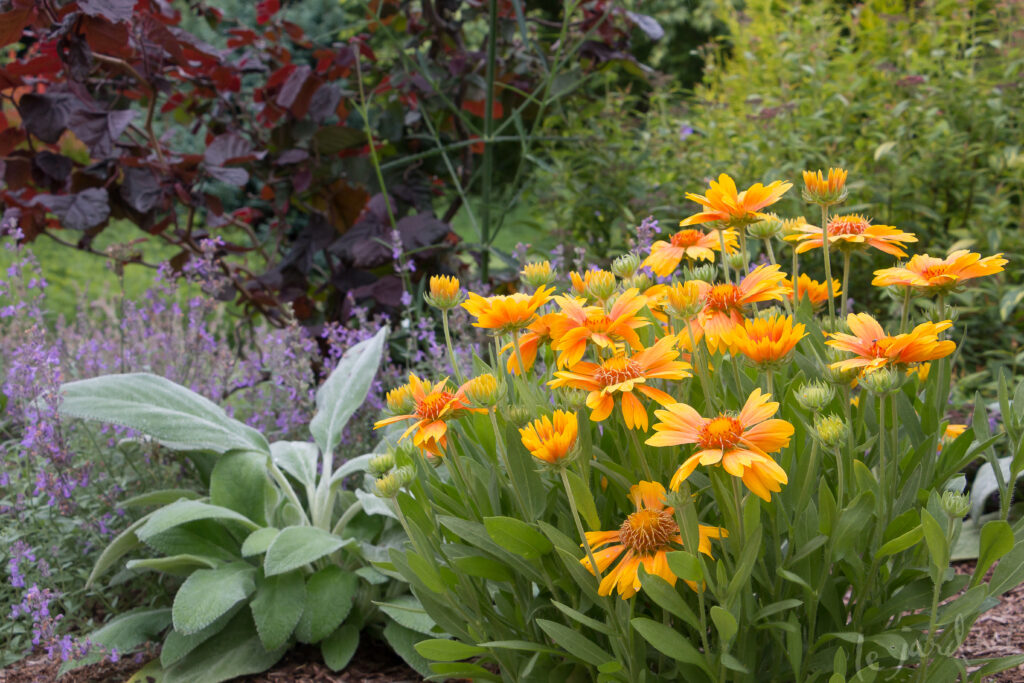
Apricot Arizona blanket flower is perfect for those that find the classic red and gold daisies too bright. In combination here with a dwarf catmint and lamb's ears.
This was another introduction after photographing a Portland garden for my Deer-Resistant Design book. I was familiar with Gaillardia spp. of course and was aware there were several new colors besides the classic red and yellow daisies, but somehow I'd never though they would be showy enough.
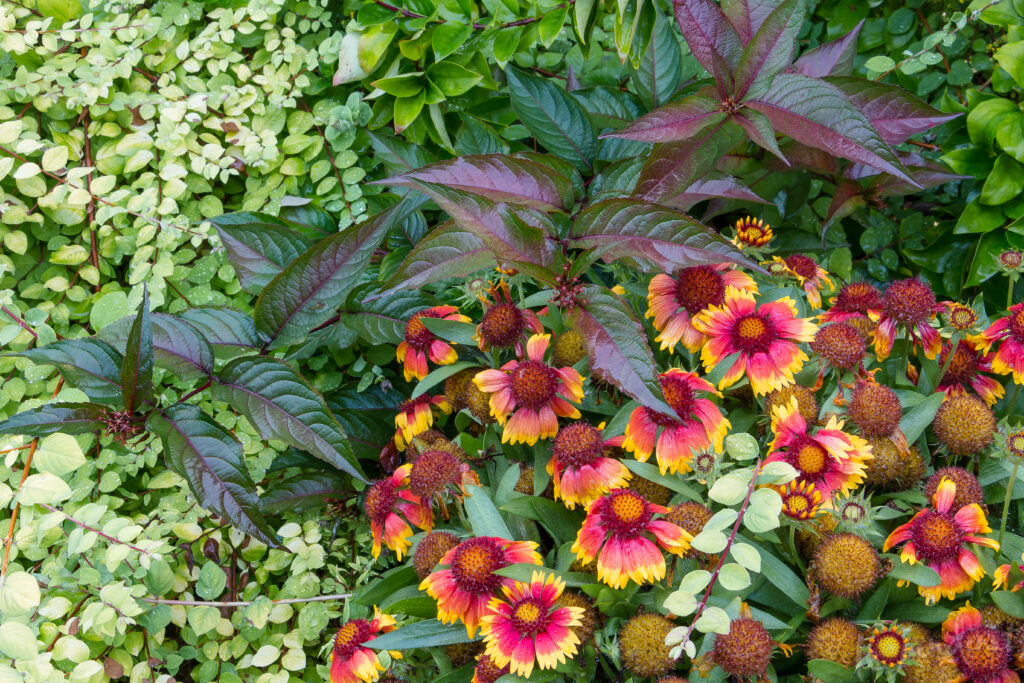
Trio of deer-resistant, drought tolerant plants in shades of red and yellow. Diervilla 'Nightglow', Gaillardia 'Arizona Sun' and Symphocarpus chenaultii 'Blade of Sun'.
While they don't bloom as long as the Rozanne geranium, blanket flowers do bloom for many weeks, beginning around mid-summer for me and their bold color really wakes up the garden. Another reason I'm recommending these is that they are so easy to grow from seed and will bloom the first year. The clumps continue to expand but not aggressively and they don't need deadheading – in fact the rosy seed heads are one of their attractive features.
Plant in full sun and well drained soil. Ignored by deer and rabbits.
Paprika Yarrow
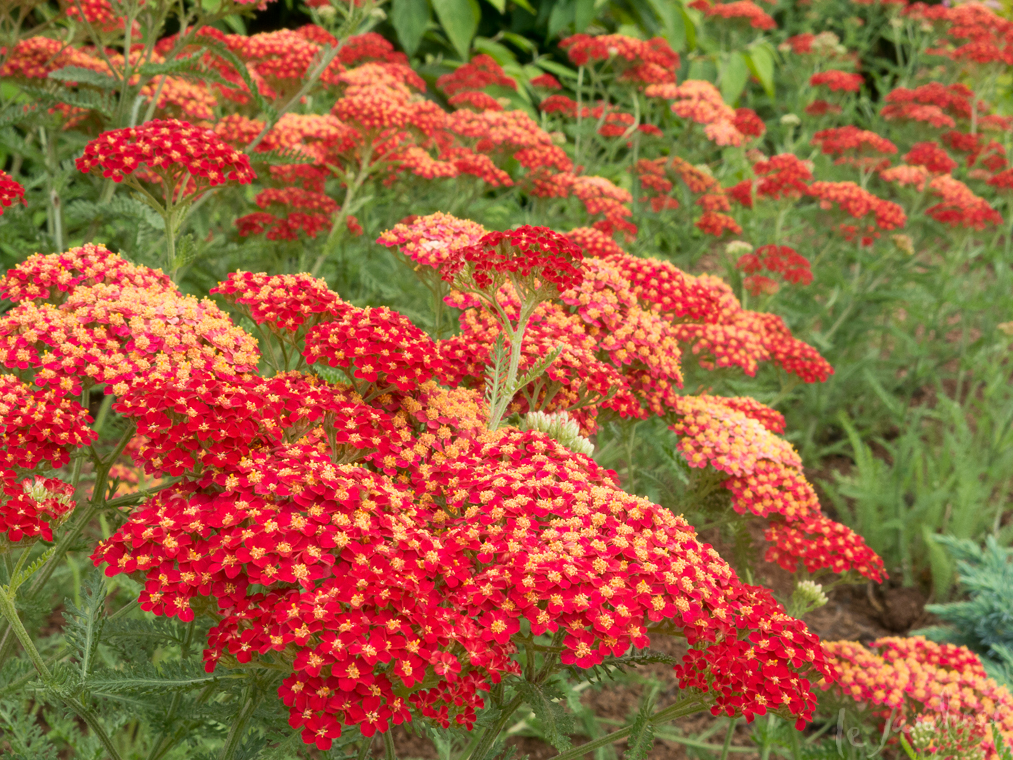
Paprika yarrow opens a rich scarlet-red before fading through pink and cream for a pretty muted look
I'm a lazy gardener. I don't want to spend my time deadheading flowers – yet many of the yarrow quickly fade to shades of grey. Paprika is a winner in that regard, emerging scarlet, fading to pink then cream before the inevitable grey persuades me to find my pruners. But those intermediate colors have extended the bloom time and color show significantly and so Paprika makes the cut for my list. Deer and rabbits have never been a problem – but the voles were and I ended up losing quite a few. Time to go shopping again…..
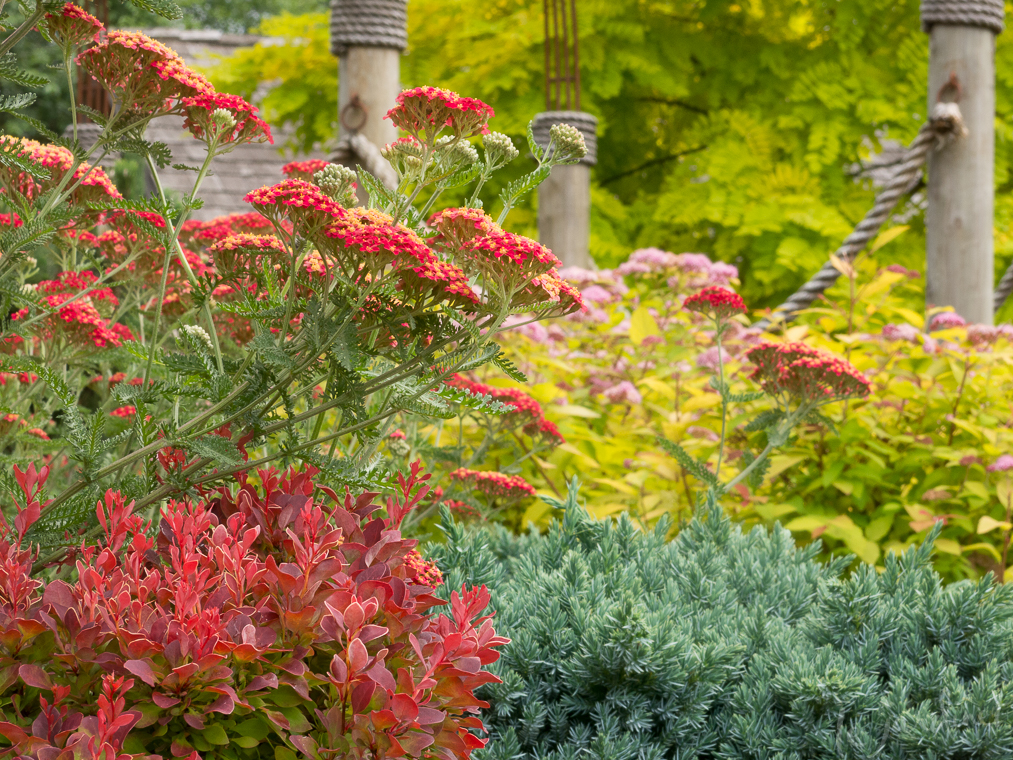
Deer-resistant, drought tolerant summer combination of Achillea millefolium 'Paprika', Berberis thunbergii 'Golden Ruby', Juniperus squamata 'Blue Star' and Spiraea 'Double Play Gold'
Plant in full sun and well drained soil.
Honorable Mentions
Black-eyed Susan: love these and have LOTS! Best planted in large drifts – which is just as well, since they do tend to spread although they are easy to corral. Leave the seed heads to stand for the birds over the winter
Silver Heart Siberian bugloss: a spring bloomer that makes the cut since once the forget-me-not flowers have faded the large silver and green, heart-shaped foliage is as pretty as any hosta. This variety (and Sea Heart) seems to have better fungal disease resistance than Jack Frost
Additional Resources
You may notice there is some cross-over between this list and my selection of Best Drought Tolerant, Deer-Resistant Perennials and Annuals. Reference back to this 2017 post for additional foliage plants and single season performers for an easy care garden.
Subscribe to Receive Blog Posts
Gardening inspiration delivered right to your inbox from Le Jardinet
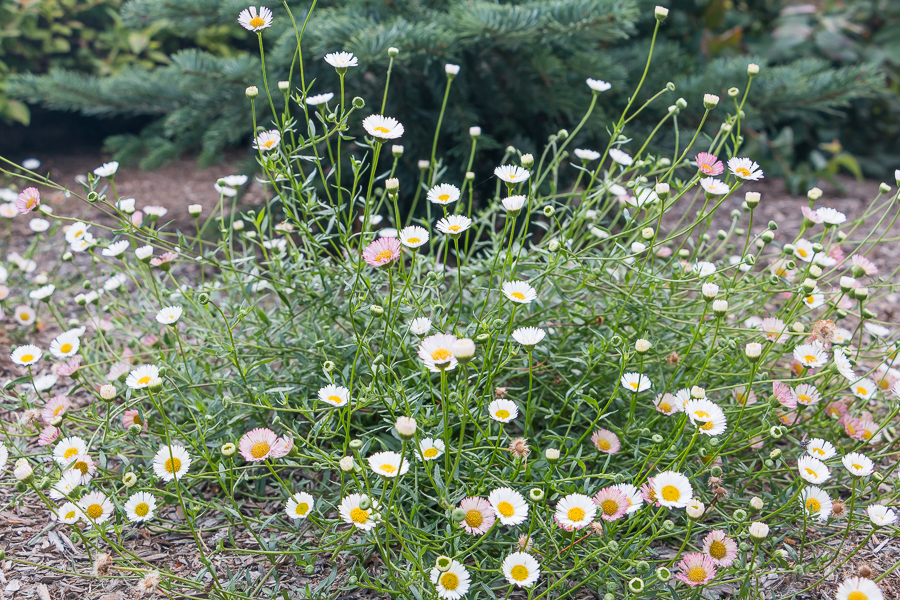
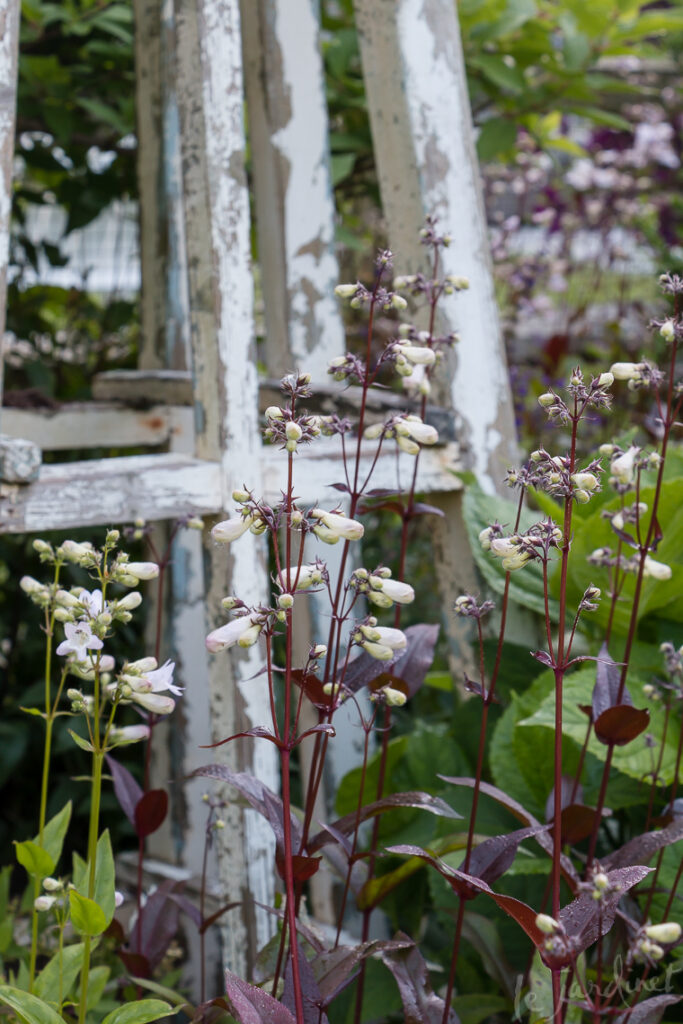
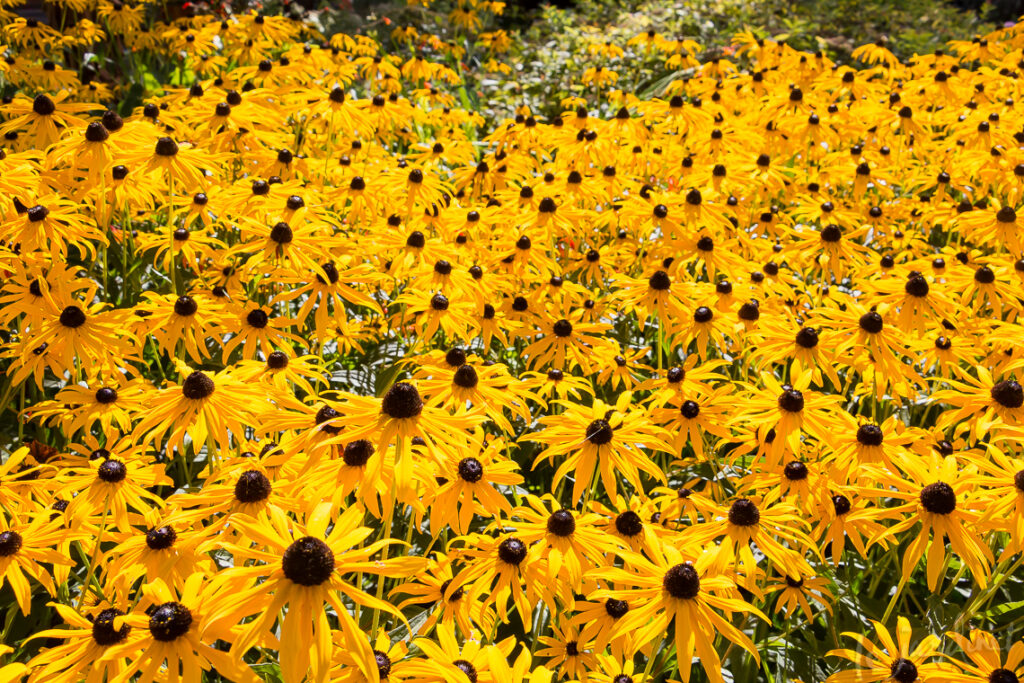
Great article Karen. I enjoyed it along with the linked article on drought tolerant plantings. I'm curious through, what is the tall chartreuse conifer and the dark green/blue plant next to it in your leadin photo at the top of the article. I assume it is from your yard. Great combination. Thanks.
Ron
Hi Ron. The conifer is Thuja occidentalis 'Forever Goldie' and the shrub I think you are referring to is Corylus avellana 'Red Majestic' as it is transitioning from burgundy to green. Glad you enjoyed the article.
Fantastic article, Karen!!! Feeling super inspired… been wanting to introduce Rozanne into the garden…going to go for it, now! Also loving the Midnight penstemon and might add Santa Barbara Daisies and blanket flower. Will be keeping an eye out for them in the nurseries.
Rozanne would fit perfectly into your garden – just keep it away from known deer routes to avoid taste-testing. The Apricot Arizona blanket flower would be pretty too – if you can't find the plants don't be afraid to grow them from seed. They are so easy – even just using a windowsill